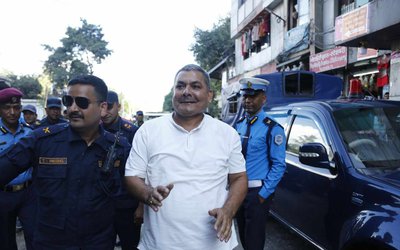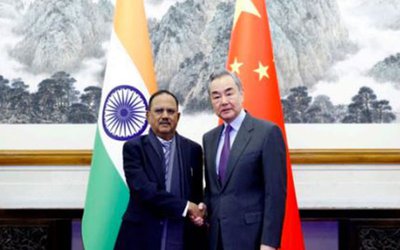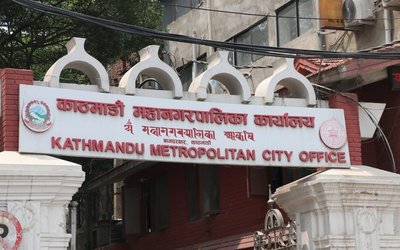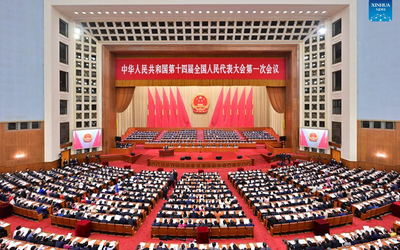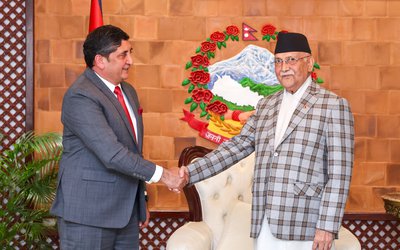There is a saying “no security without food security.” It means food security is basic. In order to be food secure, operationally, there are three dimensions; food availability, food accessibility and food utilization that need to be addressed. These dimensions of food security are greatly affected by uncertainty and risks, hence vulnerability is often considered an indispensable dimension of food security. Food security, as defined by the world summit 1996, is a state when everyone every time, has physical and economic access to sufficient, safe and nutritious food to meet the dietary needs and food preferences for an active and healthy life.
In Nepal, the degree of hunger and food insecurity varies mainly with the classes/groups of people, age, educational level, gender, culture and the geographical regions. The more food insecure people with extreme hunger are the low income groups of people living in remote and far flung settlements.
Nepal’s policy and plans have been developed and implemented by focusing on the production of commodities. Further the focus on the needs of hungry people has remained in low priority. Food security projects have largely been limited to the growth of agricultural production, which is one aspect of the dimensions. The agricultural perspective plan (APP) gives high priority to national production but pays little attention to food security of the poor and socially excluded group. Although the present Tenth Plan recognizes food security as an important development objective, it has not been able to recognize the actual food insecurity groups, their resources and appropriate ways of mobilizing them. The plan’s focus is on production and supply in the food deficit areas. The access to food of hungry households and individuals, which is a crucial dimension of food security, is not adequately reflected in the plan. The problem is not limited to the government projects, projects implemented by non-government organizations also do not adequately address issues of food security among malnourished and hungry people. Emergency food aid supports the rehabilitation and reconstruction of temporarily damaged areas, but ignores the perpetual food insecurity among underprivileged groups.
Today organic agriculture is growing throughout the world. The organic market is expanding worldwide. The worth of world organic products marketing reaches more than 39 billion USD annually, with an annual growth rate 15-25 %. More and more farmers in the planet are making the decision to base their living on organic farming. Every country has more or less share in this development, so does Nepal.
With its holistic approach organic farming contributes to the society in many ways. Using no chemical is safer for farmers, and the environment and leaves no residue in the products for consuming. Quality assurance is there for smart eating. Nepal is rich in indigenous knowledge, investing in building on the indigenous knowledge instead of synthetic inputs provides long term revenues for improving food security situation. Furthermore improving the soil fertility using locally available resources saves currency, reduces dependency, increases the resilience and stability of the production system, thus decreasing the vulnerability of poor small farmers to food insecurity and natural disasters and other disturbances, like climate change and desertification. Following a 3 year conversion period from chemical to organic farming, it will lead to sustainable yields sometimes higher than the conventional and in most cases premium prices improve the farm income meaning improvement in the accessibility to available food. There are many more positive examples; and this is why many government agencies such as ICCO the Netherlands, EED Germany, SIDA Sweden, KOICA South Korea, SDC Swiss etc and INGO such as FAO, SNV, Helvetas, ICIMOD, UMN clearly acknowledge this contribution and are starting to support organic farming initiatives in different ways. It is encouraging that the government of Nepal has in its 3 year interim plan included organic agriculture. There is also positive development in Nepal as the national organic standards is in hands and establishment of National Organic Farming Coordination Committee and National Organic Accreditation Body are pluses to this sector. Further the government should address time wise issues related to organic agriculture and develop effective support package and the mechanism of delivery to inspire organic farmers, traders and marketers.
It is obvious that tourists love unique places with peaceful, clean and natural environment. Organic farming, which is also termed as None Violence Farming, plays an important role in the promotion of responsible travel to conserve the nature. Hence the future project can be shaped in an holistic manner, in which the main interventions may include; awareness raising on the importance of organic agriculture and ecotourism, capacity building of local institutions on related areas particularly on knowledge transfer related to nature conservation, ecotourism, organic production, value addition of commodities and market development. Nepal with abundant heritage is our pride and its natural beauty in the world, if we could make it chemical and pesticide free organic nation, will add a feather in its cap to further beautify and enhance its attraction. Thus a combination of organic farming and ecotourism may result in an ideal destination with unique identity.
- SWISS SUPPORT: Construction Of A Trekking Trail In Koshi
- Dec 19, 2024
- PM OLI'S VISIT TO CHINA: BRI Agreement
- Dec 16, 2024
- RASUWAGADHI AND SANJEN: Begin Generation
- Dec 03, 2024
- NEPAL, INDIA ELECTRICITY TRADE Nepal's Advantage
- Dec 02, 2024
- PM Oli'S VISIT TO CHINA: Nepal's Dilemma
- Dec 01, 2024



